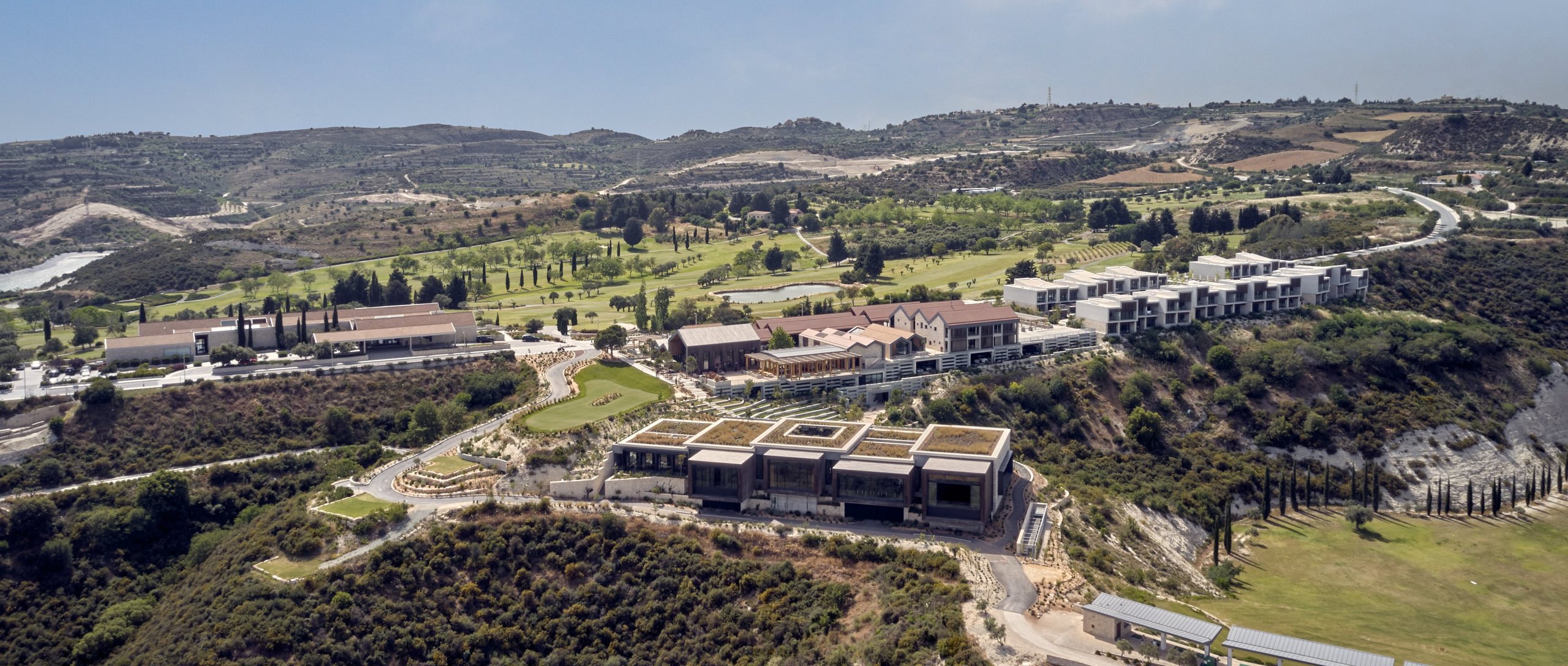Dreaming of earning a living under the sun-drenched skies of Cyprus? Whether you’re planning a permanent move or testing the waters with a part-time base, working in Cyprus allows you to experience the culture more deeply than any holiday ever could. From digital nomads to career changers, more people are now making Cyprus their professional home, so read on to lean about how to work in Cyprus.
It’s not always straightforward, though. Knowing the rules, where to look for job opportunities and how to fit into the local work culture can make all the difference. In this article, we’ll walk you through what working life in Cyprus really looks like in 2025 – including income expectations, popular industries, employment rights and language requirements.
Let’s explore how you can earn money and still enjoy that sea breeze lifestyle.
Contents

Residency and permits: who can work in Cyprus?
To legally work in Cyprus, you need the correct residency status. For EU citizens, this is relatively straightforward – you’re free to live and work in Cyprus, but you must register with the Civil Registry and Migration Department if your stay lasts longer than 90 days.
For non-EU nationals, including British citizens post-Brexit, you’ll need to secure either a work permit or a long-stay visa tailored to professional activity. These typically require a job offer from a Cypriot employer or evidence of self-employment. If you plan to work remotely for a company outside Cyprus, you may qualify for the Digital Nomad Visa, which as of 2025, allows third-country nationals to live and work online from Cyprus for up to a year, with the option to renew.
It’s essential to check whether your profession requires local licensing – especially in fields like education, healthcare or engineering. A property purchase does not grant you the legal right to work, so always seek formal authorisation beforehand.
For a closer look at purchasing property abroad, make sure you grab your copy of the Cyprus Buying Guide:
Download the Cyprus Buying Guide
Employment rights: hours, pay and leave
The Cypriot labour laws offer clear protections for employees, whether you’re contracted full-time or part-time. The working week typically spans five days, totalling about 38 to 40 hours. By law, no individual can work more than 48 hours per week including overtime, a directive aligned with the EU Working Time Directive.
Overtime is capped at two hours per day and up to eight hours per week. If your employer asks for more, and you’re not properly compensated or insured, that’s a red flag.
Cyprus’ minimum wage rules were overhauled in January 2023. In 2025, entry-level employees can expect a minimum monthly wage of €940, increasing with time and experience. On average, private sector salaries range from €1,500 to €2,800 per month, depending on the sector and location.
Maternity leave can feel limited compared to the UK: new mothers receive 18 weeks for their first child, with the period increasing slightly with each subsequent birth. Fathers are entitled to two weeks of paternity leave. Though shorter, this leave is generally well-supported through both public funds and employer arrangements.
Work culture in Cyprus: what to expect
Many newcomers expect a completely laidback experience – imagine siestas by the beach and long lunches in cobbled town squares. The reality? Cyprus is certainly slower-paced compared to big European capitals, but the workplace is still structured, especially in established businesses and government roles.
Cypriots pride themselves on being conscientious professionals. Hierarchies are respected, titles matter, and meetings tend to be formal. You’ll be expected to dress smartly, arrive on time, and conduct yourself with courtesy. That said, don’t be surprised if you’re invited for coffee after a meeting – hospitality and work often blend seamlessly here.
Communication styles can vary. Greek Cypriots may come across as direct but they greatly appreciate respectful dialogue and openness, especially from international colleagues who take time to learn the local customs.
While the Mediterranean lifestyle prevails outside office hours, do keep in mind that not all employers embrace a flexible, modern approach to remote work. However, some international companies and startups based in Limassol or Nicosia are more progressive in this regard. This is where you’ll find many of Cyprus’ burgeoning tech companies.
Seasonal versus year-round work
Tourism dominates Cyprus’ economy and hiring patterns often follow the holiday calendar – with hotels, bars and travel services ramping up between April and October. This makes summer a great time for landing short-term roles, especially in coastal resorts like Ayia Napa, Protaras and Paphos.
But what if you’re planning to live – and work – in Cyprus all year? You’ll be glad to hear that employment opportunities do exist beyond the tourist season. Cyprus attracts winter visitors from northern Europe, the Middle East and beyond. Larger hotels and entertainment venues, such as those in Limassol and Nicosia, stay open year-round and require staff even in the quieter months.
Outside tourism, Cyprus has a robust financial sector including banking, accountancy and corporate law – especially serving international clients. Shipping (particularly around Limassol), education, tech and real estate also offer steady employment. Mining and energy remain strong in the centre of the island, and new opportunities in green energy and offshore natural gas are developing in 2025.
If you’re not tied to the local economy, remote work remains an excellent option – just ensure it complies with your residency status and tax obligations.
Language requirements and breaking into the job market
One of the most common questions from overseas job seekers is: “Do I need to speak Greek to work in Cyprus?” The answer is… it depends.
In sectors like tourism, hospitality and real estate, having fluent English can be enough, especially if you’re dealing mostly with international visitors or expats. Many businesses in Limassol, Paphos and Larnaca actively recruit English speakers – and your native fluency can be seen as a bonus.
However, for positions in healthcare, education, public administration or law, Greek is usually a must. The same is true if you want to work in smaller local communities where English is less commonly spoken.
The good news? Cypriots are often multilingual, and many employers are happy to support your journey as you learn the language. Picking up Greek – even at a basic conversational level – will boost your employability and enrich day-to-day life.
For entrepreneurs, there’s a growing opportunity in running English-language services such as boutique guesthouses, marketing consultancies, or online shops. Just remember: opening a café or taverna might seem romantic, but the reality involves long hours and plenty of paperwork. Research thoroughly before diving in.
Where to find work in Cyprus
Location matters when it comes to finding work in Cyprus. Here’s a quick rundown of the best areas depending on what you’re looking for.
- Limassol – The island’s business capital and a hotspot for digital jobs, shipping, international finance and large-scale tourism.
- Nicosia – Cyprus’ capital city and administrative hub with public sector jobs, embassies, and plenty of year-round employment. It’s not on the coast but full of local culture and career options.
- Larnaca – Home to the island’s main international airport, with jobs in aviation, logistics, hospitality and real estate.
- Paphos – A popular place for expats and seasonal workers, particularly in villa management, tourism and customer service.
- Ayia Napa and Protaras – Best known for summer jobs in entertainment, retail, and restaurants. Limited roles outside peak season.
For remote professionals, anywhere with a solid internet connection and nice view might do the trick – Cyprus ranks well for digital connectivity and has coworking hubs in most cities.
Looking for jobs before you arrive? Platforms like JobsCyprus, Ergodotisi, and Cyprus Work are regularly updated with current listings.
Ready to build your future in Cyprus?
If you’ve made it this far, it’s clear you’re serious about making working in Cyprus part of your lifestyle. Whether your goal is a flexible freelance setup, a new corporate role or setting up your own business, 2025 offers more options than ever before.
Our team at Your Overseas Home is here to help you plan your move with confidence. From connecting you with bilingual property agents to finding partners to help with visa, tax and banking matters, we simplify the process of building a life abroad.
Need personal advice? Book a free consultation with a property consultant.
FAQs about working in Cyprus
Yes. EU citizens can work freely in Cyprus but must register after 90 days. Non-EU nationals, including British citizens, need a valid work permit, residence visa or digital nomad visa depending on the nature of their work.
In 2025, the minimum monthly wage is €940. Average salaries range from €1,500 to €2,800 per month, depending on the role and industry. Higher wages are found in sectors like tech, finance and law.
It depends on the industry. English is widely used in tourism, tech, and real estate. However, Greek is often required for roles in healthcare, law, government and local businesses outside tourist areas.
The standard working week is 38 to 40 hours across five days. Overtime is limited by law. Work culture is professional and respectful, with a mix of formality and Mediterranean warmth. Remote work is growing, especially in tech hubs.
Limassol and Nicosia offer year-round work in finance, tech, and public services. Larnaca and Paphos are ideal for tourism and hospitality roles. Seasonal work is common in Ayia Napa and Protaras. Job boards like JobsCyprus and Ergodotisi are good starting points.









